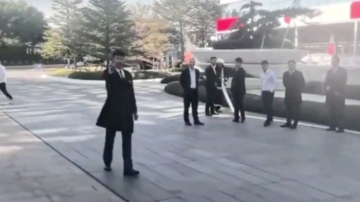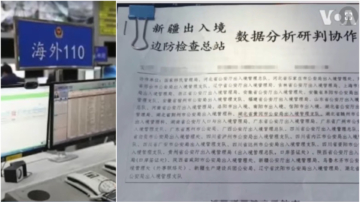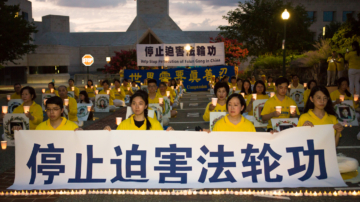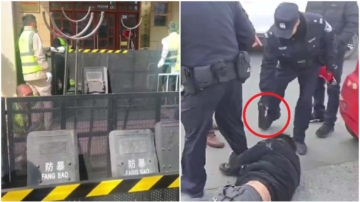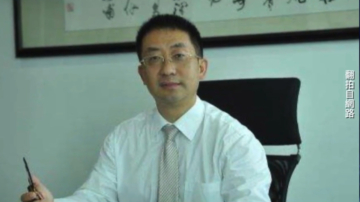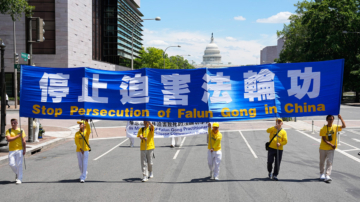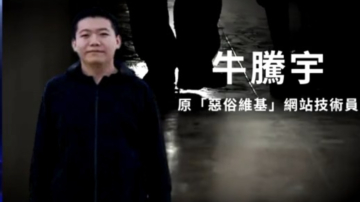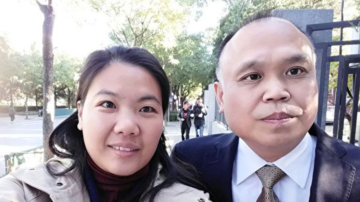【新唐人2013年09月17日訊】大陸「最高人民法院」、和「最高人民檢察院」(兩高),針對網路犯罪言論的最新司法解釋出臺後,引發了以法律界為首的反對聲浪。不斷有律師以個人名義向「兩高」提出異議。近期,更有法律界人士進一步發起聯合上書人大常委會的簽名活動,要求人大廢止「兩高」有關網路犯罪的司法解釋,並追究「兩高越權立法」的法律責任。這一做法引發了法律界震動和律師們的積極響應。
由北京律師程海、王全璋、黎雄兵等多名律師,共同起草的「建議全國人大常委會依法審議並廢止兩高網路犯罪司法解釋」公民監督建議書,9月15號下午在網路公開徵集簽名,隨後正式寄出。
建議書提出,「兩高」關於網路犯罪言論的司法解釋,多處涉嫌越權立法,應該依法廢止。
北京律師王全璋:「就是因為兩高擴大權利,越權解釋,實際上立法來懲罰公民的一個所謂的不當言論,實際上限制了公民的言論自由。我們主要是根據法律上的一些規定,以及法律上,特別是《人大常委會監督法》,要求人大去廢止這種兩高的司法解釋。 」
雖然這份建議書在新浪微博公開不久立即遭到封殺,但短短時間內,依然得到了多名律師及法律界人士的積極響應。
中國大陸法律界人士普遍認為,按照《憲法》六十七條和《立法法》四十二條規定,司法解釋權在全國人大常委會,而不是最高法院和最高檢察院。「兩高」作為司法機構,並沒有立法權,因此,它們的「司法解釋」不具有法律效力。
北京市律師協會憲法人權委員會委員楊學林:「它對尋釁滋事的解釋進行了擴大化,包括網路上的尋釁滋事,以及網路的言論如何影響到客觀現實當中的社會秩序問題,這些呢,由司法解釋來做,我們認為是不合適的,應該由立法部門進行法律的修改。」
建議書還指出,「兩高」釋法的根本目地,是為當局打擊網路言論自由提供法律依據,試圖遏制公眾對中共各種公權力違法不滿的網路曝光、監督、控告等行為。
杭州律師王成:「我們認為兩高出來的解釋,跟今年所出現的....近期打擊所謂的『網路謠言』的活動是緊密聯繫的,這個在一定程度上,它應該說表現的非常明顯,它就是要壓制公民的言論自由,壓制公民利用網路來進行反腐的一些活動。」
杭州律師王成9月9號也在網上呼籲中共人大常委會處理「兩高」的越權問題。王成還起草了聯署公開信。
中國律師界除了聯署公開信或建議書之外,還有很多律師紛紛以個人的名義寫信給中共人大,要求追究「兩高」的法律責任。
被稱為律壇怪俠的湖南維權律師楊金柱,11號晚在博客上表示,他將以中國公民和律師的雙重身份,向中共人大實名舉報「兩高」關於網路言論司法解釋違反憲法,他要求人大對「兩高」的司法解釋進行違憲審查。
多年來,中國法律界關於「兩高」司法解釋權的爭議一直不斷。如﹕ 1999年10月30號,以及2001年6月4號,「兩高」兩次聯名出臺「關於利用邪教組織犯罪」的若干司法解釋。這些司法解釋雖然被法律界的很多律師認定「不具備任何法律效力」,甚至違反了《憲法》,卻依然被中共利用來打擊「法輪功」長達十多年之久。因此,一些律師對這次中共能否接受律師界建議,命令「兩高」廢除對網路言論犯罪的司法解釋,並不抱有太大希望。
採訪編輯/ 張天宇 後製/李月
Lawyers Jointly Sue China's Two Top Legal Authorities
The latest judicial interpretation of cyber crimes by
China's Supreme People's Court and
China's Supreme People's Procuratorate (The Top Two)
has triggered strong opposition led by the legal community.
Lawyers continue to raise objections using their real names.
Lawyers have started collecting signatures for a joint letter
to the National People's Congress' (NPC) standing committee,
asking the NPC to abolish the judicial interpretation by
The Top Two, and to charge their unauthorized legislation.
This has shaken China's legal community
and had a positive response from lawyers.
Beijing lawyers Cheng Hai, Wang Quanzhang, Li Xiongbing
and others jointly drafted a petition titled,
"Proposal to NPC Standing Committee to Exam and Abolish
The Top Two's Judicial Interpretation of Cybercrime Crime."
They called for online signatures on the afternoon of
September 15th and then officially mailed them.
The proposal pointed out that The Top Two's interpretation
of cybercrime involves many violations of their power,
and should be abolished according to the law.
Beijing lawyer Wang Quanzhang: "The Top Two
expanded their power to establish a law aiming at
punishing citizens for so-called inappropriate remarks,
but it in reality it limits citizens' freedom of speech.
We are mainly making our request for the NPC to abolish
The Top Two's judicial interpretation based on legal provisions,
especially the 'NPC Standing Committee Supervision Law.'"
Although this proposal was blocked soon after
it was published on Sina Weibo,
it still got positive responses from many lawyers
and legal professionals.
Mainland China's legal professionals generally say that,
according to Article 67 of China's constitution and
Article 42 of Legislation Law,
the right of judicial interpretation lies with NPC,
not The Top Two.
The Top Two are judiciary organizations.
They do not have legislative power,
so their "judicial interpretation" is without legal effect.
Yang Xuelin, Beijing Lawyers Association Committee Member:
"It broadens the definitions of causing trouble on the internet,
and online remarks' impact to social orders.
We think it is inappropriately interpreted by the judicial system.
It should be modified by the legislative body."
The proposal also noted that the goal of The Top Two's
interpretation is to crack down on online information leaks,
further monitor netizens, and punish any complaints about
the crimes of the Chinese Communist Party (CCP).
Hangzhou lawyer Wang Cheng:
"We believe The Top Two's interpretation
is closely tied to the recent crackdown on 'online rumors.'
It is very obvious it wants to suppress freedom of speech,
and repress people's online anti-corruption activities."
On September 9, Hangzhou lawyer Wang Cheng
also spoke out online, calling upon the NPC to handle
The Top Two's violation of power.
Wang Cheng also drafted a joint open letter.
Many other Chinese lawyers wrote individually to the NPC
calling for The Top Two to be held to their legal responsibility.
Hunan Human Rights lawyer Yang Jinzhu said on his Weibo
he would use his real name to report to the NPC on
the unconstitutional interpretation of The Top Two
as a Chinese citizens and a lawyer.
He would ask the NPC to conduct investigation
on The Top Two's violation of the law.
Over the years, China's legal community has constantly
debated The Top Two's power of judicial interpretation,
such as the joint judicial interpretations by The Top Two
on October 1, 1999 and June 4, 2001
on "Committing Crimes Using Cult Organizations."
These judicial interpretations were used by the CCP to
crack down Falun Gong for over a decade,
although many lawyers found that this is without
legal effect and even violates the law.
Therefore, some lawyers do not hold much hope on
whether the CCP would accept the suggestion by lawyers to
abolish the judicial interpretation of online speech crime.
由北京律師程海、王全璋、黎雄兵等多名律師,共同起草的「建議全國人大常委會依法審議並廢止兩高網路犯罪司法解釋」公民監督建議書,9月15號下午在網路公開徵集簽名,隨後正式寄出。
建議書提出,「兩高」關於網路犯罪言論的司法解釋,多處涉嫌越權立法,應該依法廢止。
北京律師王全璋:「就是因為兩高擴大權利,越權解釋,實際上立法來懲罰公民的一個所謂的不當言論,實際上限制了公民的言論自由。我們主要是根據法律上的一些規定,以及法律上,特別是《人大常委會監督法》,要求人大去廢止這種兩高的司法解釋。 」
雖然這份建議書在新浪微博公開不久立即遭到封殺,但短短時間內,依然得到了多名律師及法律界人士的積極響應。
中國大陸法律界人士普遍認為,按照《憲法》六十七條和《立法法》四十二條規定,司法解釋權在全國人大常委會,而不是最高法院和最高檢察院。「兩高」作為司法機構,並沒有立法權,因此,它們的「司法解釋」不具有法律效力。
北京市律師協會憲法人權委員會委員楊學林:「它對尋釁滋事的解釋進行了擴大化,包括網路上的尋釁滋事,以及網路的言論如何影響到客觀現實當中的社會秩序問題,這些呢,由司法解釋來做,我們認為是不合適的,應該由立法部門進行法律的修改。」
建議書還指出,「兩高」釋法的根本目地,是為當局打擊網路言論自由提供法律依據,試圖遏制公眾對中共各種公權力違法不滿的網路曝光、監督、控告等行為。
杭州律師王成:「我們認為兩高出來的解釋,跟今年所出現的....近期打擊所謂的『網路謠言』的活動是緊密聯繫的,這個在一定程度上,它應該說表現的非常明顯,它就是要壓制公民的言論自由,壓制公民利用網路來進行反腐的一些活動。」
杭州律師王成9月9號也在網上呼籲中共人大常委會處理「兩高」的越權問題。王成還起草了聯署公開信。
中國律師界除了聯署公開信或建議書之外,還有很多律師紛紛以個人的名義寫信給中共人大,要求追究「兩高」的法律責任。
被稱為律壇怪俠的湖南維權律師楊金柱,11號晚在博客上表示,他將以中國公民和律師的雙重身份,向中共人大實名舉報「兩高」關於網路言論司法解釋違反憲法,他要求人大對「兩高」的司法解釋進行違憲審查。
多年來,中國法律界關於「兩高」司法解釋權的爭議一直不斷。如﹕ 1999年10月30號,以及2001年6月4號,「兩高」兩次聯名出臺「關於利用邪教組織犯罪」的若干司法解釋。這些司法解釋雖然被法律界的很多律師認定「不具備任何法律效力」,甚至違反了《憲法》,卻依然被中共利用來打擊「法輪功」長達十多年之久。因此,一些律師對這次中共能否接受律師界建議,命令「兩高」廢除對網路言論犯罪的司法解釋,並不抱有太大希望。
採訪編輯/ 張天宇 後製/李月
Lawyers Jointly Sue China's Two Top Legal Authorities
The latest judicial interpretation of cyber crimes by
China's Supreme People's Court and
China's Supreme People's Procuratorate (The Top Two)
has triggered strong opposition led by the legal community.
Lawyers continue to raise objections using their real names.
Lawyers have started collecting signatures for a joint letter
to the National People's Congress' (NPC) standing committee,
asking the NPC to abolish the judicial interpretation by
The Top Two, and to charge their unauthorized legislation.
This has shaken China's legal community
and had a positive response from lawyers.
Beijing lawyers Cheng Hai, Wang Quanzhang, Li Xiongbing
and others jointly drafted a petition titled,
"Proposal to NPC Standing Committee to Exam and Abolish
The Top Two's Judicial Interpretation of Cybercrime Crime."
They called for online signatures on the afternoon of
September 15th and then officially mailed them.
The proposal pointed out that The Top Two's interpretation
of cybercrime involves many violations of their power,
and should be abolished according to the law.
Beijing lawyer Wang Quanzhang: "The Top Two
expanded their power to establish a law aiming at
punishing citizens for so-called inappropriate remarks,
but it in reality it limits citizens' freedom of speech.
We are mainly making our request for the NPC to abolish
The Top Two's judicial interpretation based on legal provisions,
especially the 'NPC Standing Committee Supervision Law.'"
Although this proposal was blocked soon after
it was published on Sina Weibo,
it still got positive responses from many lawyers
and legal professionals.
Mainland China's legal professionals generally say that,
according to Article 67 of China's constitution and
Article 42 of Legislation Law,
the right of judicial interpretation lies with NPC,
not The Top Two.
The Top Two are judiciary organizations.
They do not have legislative power,
so their "judicial interpretation" is without legal effect.
Yang Xuelin, Beijing Lawyers Association Committee Member:
"It broadens the definitions of causing trouble on the internet,
and online remarks' impact to social orders.
We think it is inappropriately interpreted by the judicial system.
It should be modified by the legislative body."
The proposal also noted that the goal of The Top Two's
interpretation is to crack down on online information leaks,
further monitor netizens, and punish any complaints about
the crimes of the Chinese Communist Party (CCP).
Hangzhou lawyer Wang Cheng:
"We believe The Top Two's interpretation
is closely tied to the recent crackdown on 'online rumors.'
It is very obvious it wants to suppress freedom of speech,
and repress people's online anti-corruption activities."
On September 9, Hangzhou lawyer Wang Cheng
also spoke out online, calling upon the NPC to handle
The Top Two's violation of power.
Wang Cheng also drafted a joint open letter.
Many other Chinese lawyers wrote individually to the NPC
calling for The Top Two to be held to their legal responsibility.
Hunan Human Rights lawyer Yang Jinzhu said on his Weibo
he would use his real name to report to the NPC on
the unconstitutional interpretation of The Top Two
as a Chinese citizens and a lawyer.
He would ask the NPC to conduct investigation
on The Top Two's violation of the law.
Over the years, China's legal community has constantly
debated The Top Two's power of judicial interpretation,
such as the joint judicial interpretations by The Top Two
on October 1, 1999 and June 4, 2001
on "Committing Crimes Using Cult Organizations."
These judicial interpretations were used by the CCP to
crack down Falun Gong for over a decade,
although many lawyers found that this is without
legal effect and even violates the law.
Therefore, some lawyers do not hold much hope on
whether the CCP would accept the suggestion by lawyers to
abolish the judicial interpretation of online speech crime.

